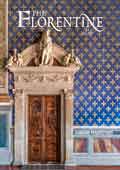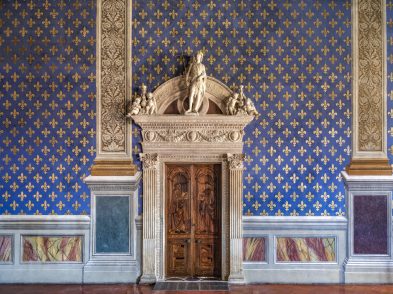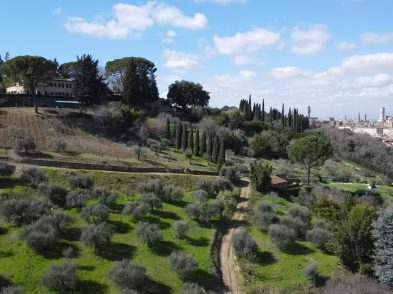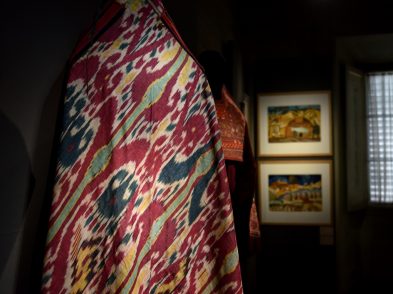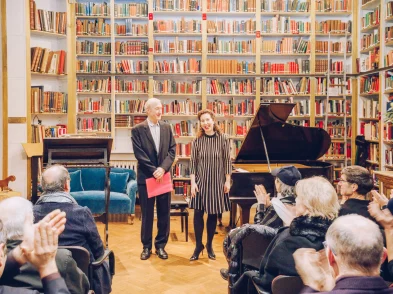Reopening to the public tomorrow, Giunti Odeon turns over a new leaf in its 109 years of culture.
Open seven days a week, from 8.30 in the morning to the end of each night’s film, Giunti Odeon, or GO, as it is styled, maintains its mission as a cinema. One screen guarantees night-time movie projections, while a LED wall, unique in central Italy, ensures daytime entertainment in Italian and English. What immediately grabs the attention, however, are the bookshelves lined with 25,000-plus titles occupying the entire ground floor, including the foyer.
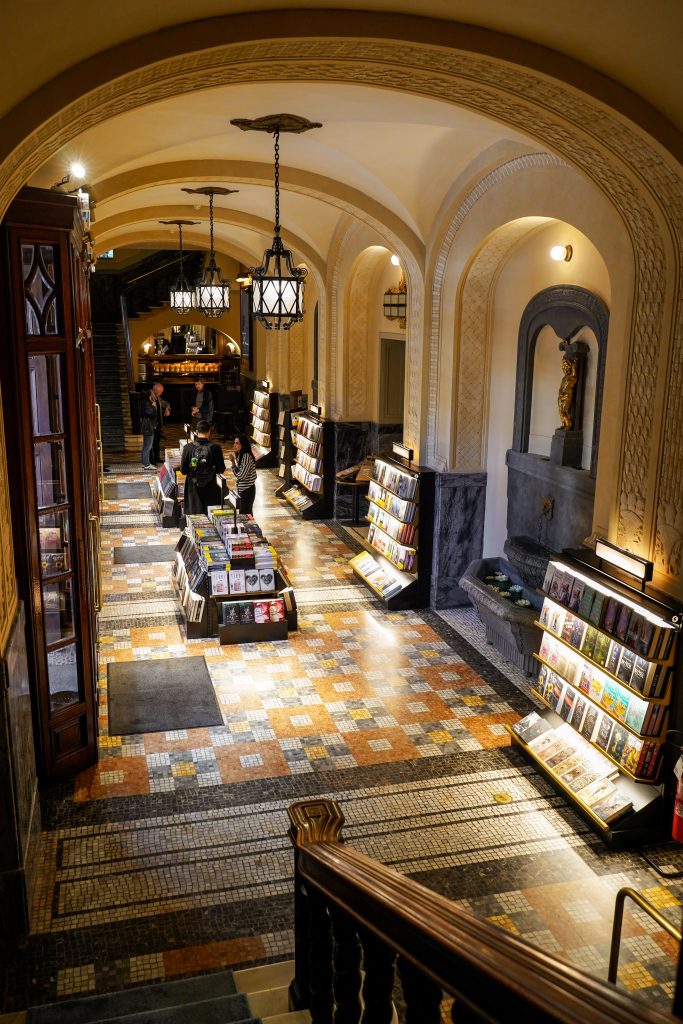
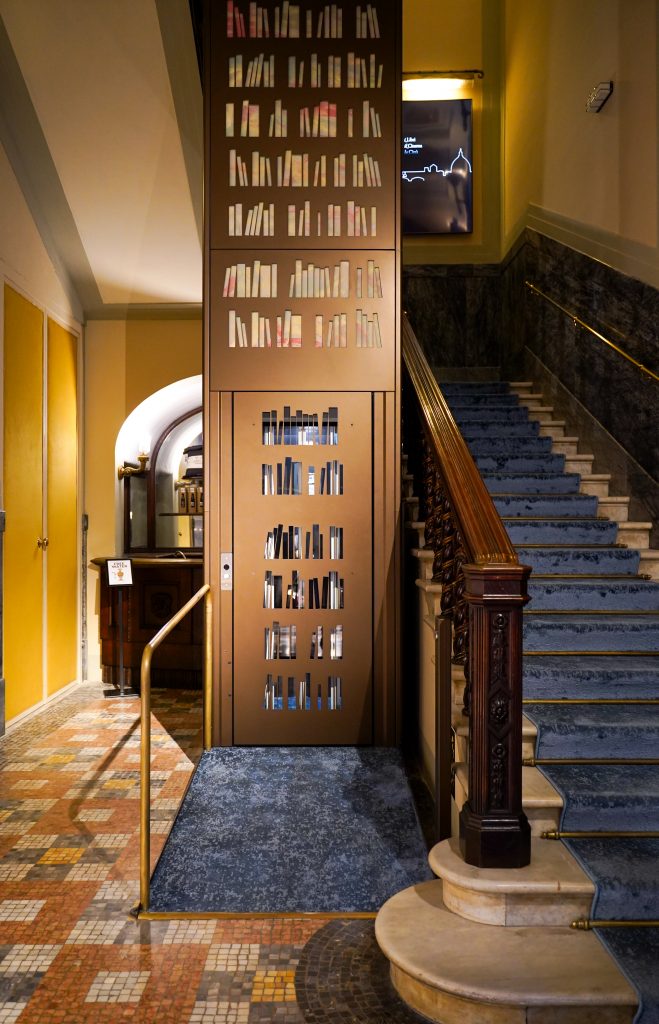
Renovated by Florence-based Studio Benaim, the redesign is respectful and rational. At first glance, Odeon lovers might be perturbed by the repurposing of the stalls, yet they will undoubtedly appreciate the dusting down of the original details, such as the working fountains, replenished tapestries and ornately decorated columns. Settled in just shy of 200 plush armchairs in the mezzanine gallery, cinema goers are undisturbed by the bookshelves below, hovering above chartaceous culture while indulging in the upgraded culture of the moving screen, perhaps having taken the lift wrapped in weathered steel with bookish cutouts. Reassuringly, the terrazzo floors, glass dome, gilded lettering and heavy golden drapes all remain intact, as required by the city’s fine arts department.
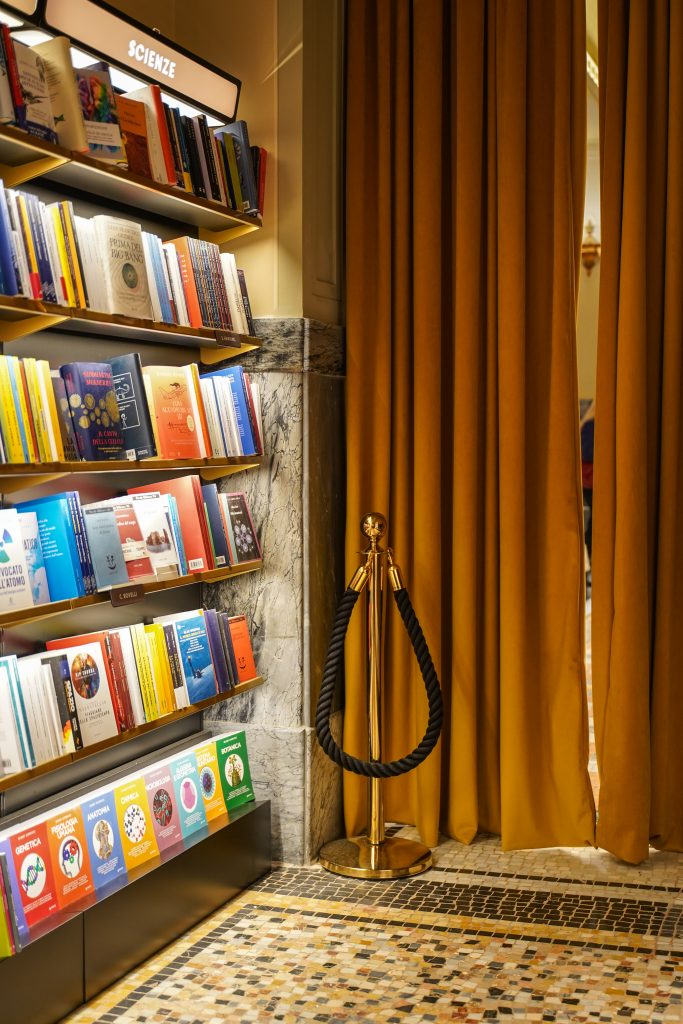
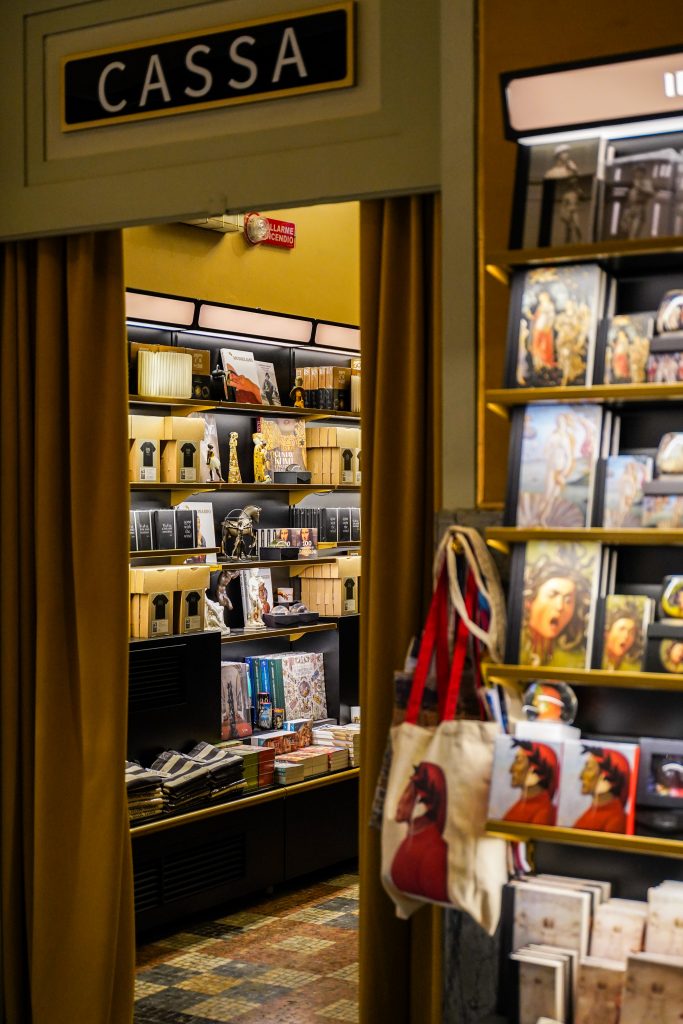
Readers of The Florentine will be relieved to learn that Giunti Odeon intends to uphold its cosmopolitan vocation, showing original-language films with subtitles every night at 9pm. This month’s highlights include 4K restored The Big Lebowski on November 13+14, Kenneth Branagh’s A Haunting in Venice on November 20, Wes Anderson’s Asteroid City on November 22 and Ridley Scott’s Napoleon from November 23-25. Wonka starring Timothé Chalamet is in the works for December viewing. The latest blockbusters and restored classics will comprise the playbill chosen by Gloria Germani and Marco Luceri, in partnership with renowned film archive, Cineteca di Bologna.
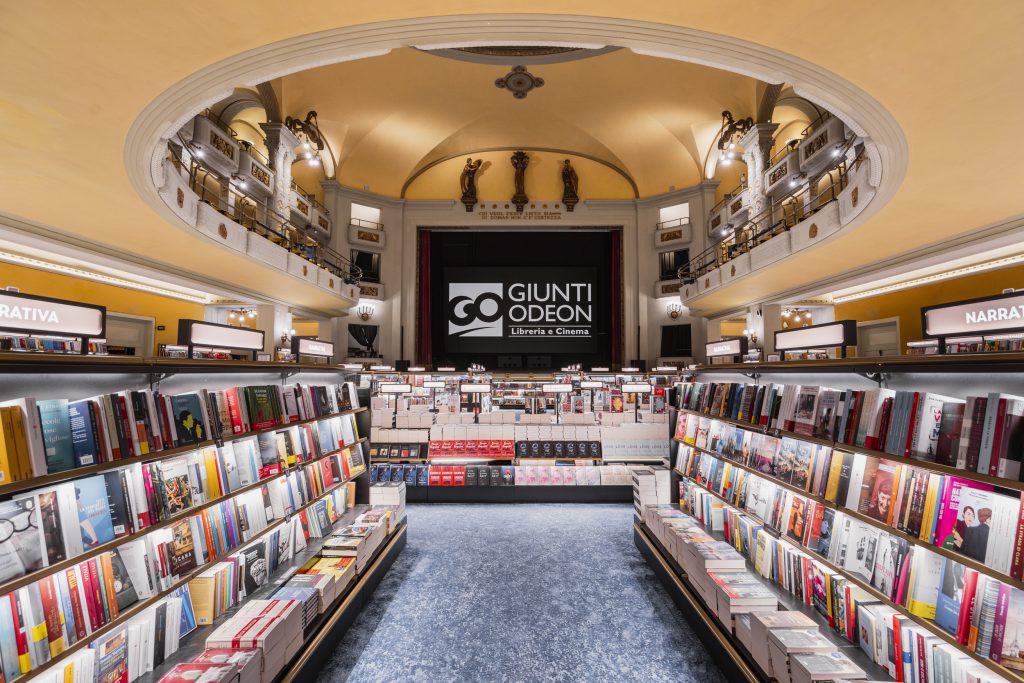
Book presentations, art shows, concerts, readings and children’s workshops will be managed by artistic director Gabriele Ametrano, who is well respected in Florence as the brains behind literary festival La Città dei Lettori.
President of Giunti Editore, Sergio Giunti, and his team also aim to encourage students into the cultural hub with study areas equipped with fast wi-fi. After stocking up on books or before a movie night, locals and internationals can enjoy a bite curated by Tini Ferragamo at the adjacent cafè.
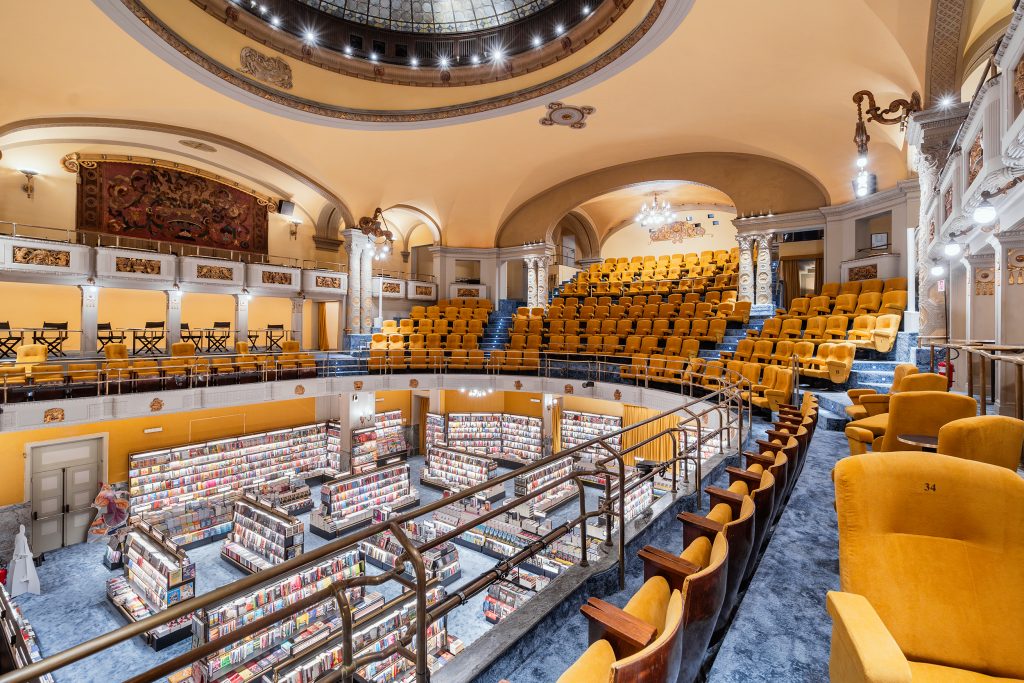
See here for upcoming events at Giunti Odeon.
History of Palazzo dello Strozzino
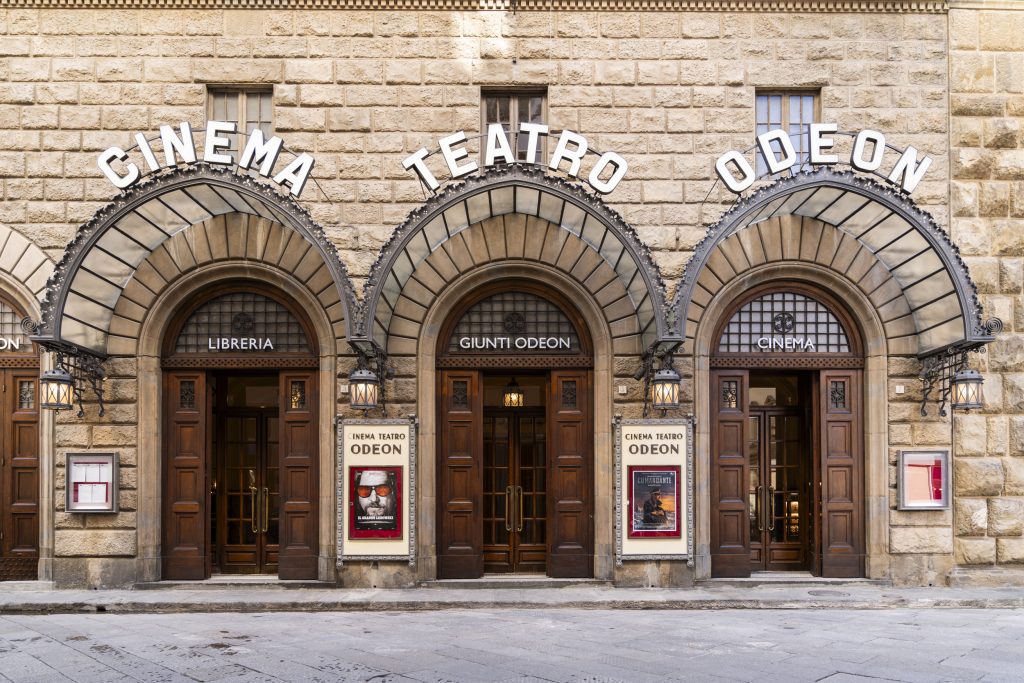
The cinema/theatre opened in 1922 in Palazzo dello Strozzino, one of the most striking Renaissance palazzos in central Florence, which Palla Strozzi had had built in 1457 according to a design by Filippo Brunelleschi and developed by Michelozzo di Bartolomeo Michelozzi. In 1914, based on the advice of actress Eleonora Duse, the new owners decided to inaugurate a stylish cinema hall, entrusting Florentine architect Adolfo Coppedè with the plans, which were brought to a close by another renowned architect, Marcello Piacentini. This exceptional edifice boasting elegant Art Déco-style interiors, sculptures by Antonio Maraini and tapestries by Matilde Festa Piacentini, opened as Cinema Teatro Savoia with a glamorous gala night on December 14, 1922. In 1936, it was taken over by Giovanni Germani before going on to host world-class film premieres, theatre performances and musicals over the years. It was renamed Cinema-Teatro Odeon when it was reopened in 1946 after the Second World War. Managed by the Germani family for 87 years, the Odeon has welcomed Italian and international stars like Louis Armstrong, Isabelle Adjani, Kate Winslet, Roberto Benigni, Bernardo Bertolucci and Paolo Sorrentino. Now, in 2023, Gloria Germani made the decision to embrace a partnership with publishing house Giunti Editore in order to secure a future for the cultural centre.
